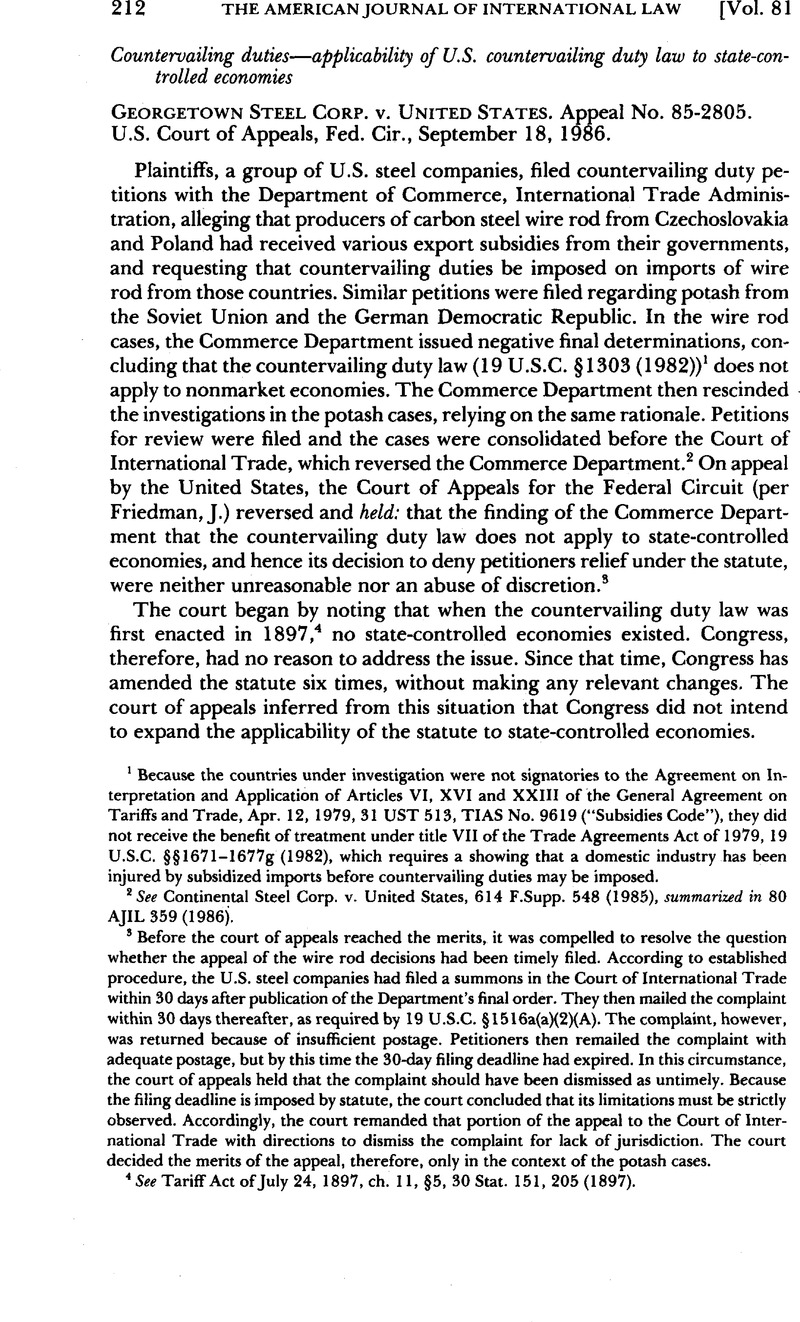No CrossRef data available.
Published online by Cambridge University Press: 27 February 2017

1 Because the countries under investigation were not signatories to the Agreement on Interpretation and Application of Articles VI, XVI and XXIII of the General Agreement on Tariffs and Trade, Apr. 12, 1979, 31 UST 513, TIAS No. 9619 (“Subsidies Code”), they did not receive the benefit of treatment under title VII of the Trade Agreements Act of 1979, 19 U.S.C. §§1671–1677g (1982), which requires a showing that a domestic industry has been injured by subsidized imports before countervailing duties may be imposed.
2 See Continental Steel Corp. v. United States, 614 F.Supp. 548 (1985), summarized in 80 AJIL 359 (1986).
3 Before the court of appeals reached the merits, it was compelled to resolve the question whether the appeal of the wire rod decisions had been timely filed. According to established procedure, the U.S. steel companies had filed a summons in the Court of International Trade within 30 days after publication of the Department’s final order. They then mailed the complaint within 30 days thereafter, as required by 19 U.S.C. §1516a(a)(2)(A). The complaint, however, was returned because of insufficient postage. Petitioners then remailed the complaint with adequate postage, but by this time the 30-day filing deadline had expired. In this circumstance, the court of appeals held that the complaint should have been dismissed as untimely. Because the filing deadline is imposed by statute, the court concluded that its limitations must be strictly observed. Accordingly, the court remanded that portion of the appeal to the Court of International Trade with directions to dismiss the complaint for lack of jurisdiction. The court decided the merits of the appeal, therefore, only in the context of the potash cases.
4 See Tariff Act of July 24, 1897, ch. 11, §5, 30 Stat. 151, 205(1897).
5 No. 85-2805, slip op. at 15 (quoting Zenith Radio Corp. v. United States, 437 U.S. 443, 455–56 (1978)).
6 Slip op. at 16 (quoting Carbon Steel Wire Rod from Poland, 49 Fed. Reg. 19,374, 19,376 (1984) (Final)).
7 Slip op. at 17.
8 Id. at 21.
9 Id. at 23.